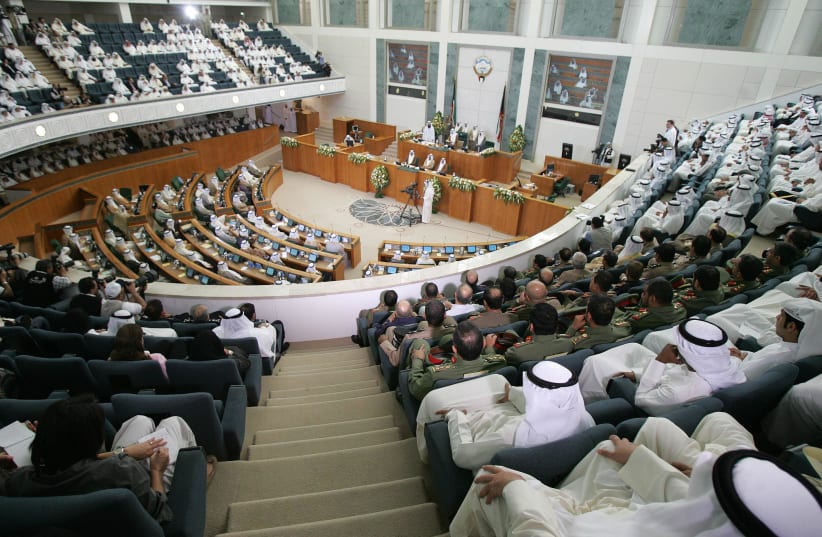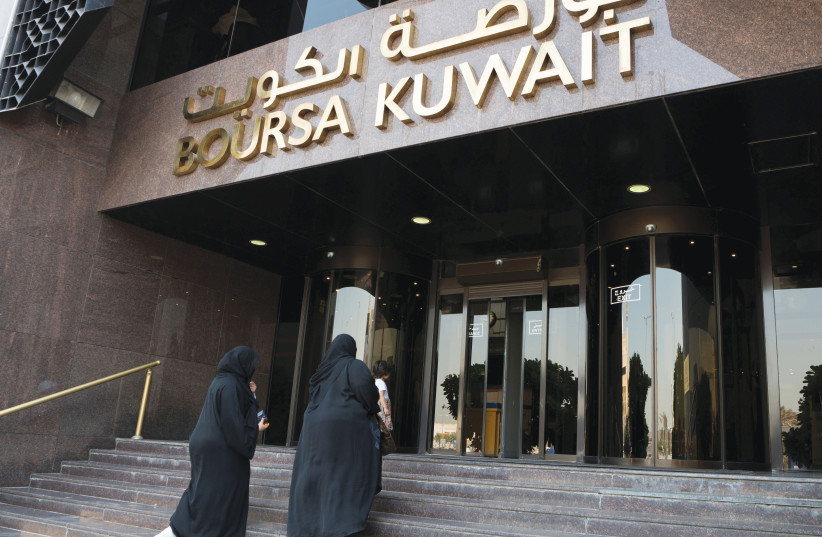Political double standards and the risk of bias
Al-Ittihad, UAE, March 23
The topic of double standards in politics has once again come to the fore, given the deadly crisis unfolding in Ukraine. We’ve all witnessed double standards when it comes to things like welcoming Ukrainian refugees and host countries, while Arab refugees – who fled an equally bloody war in Syria – were turned down at the border. We’ve seen double standards when it comes to the Western world’s support for Ukraine’s sovereignty and right for self-determination, while these very same governments denied the Palestinians similar rights.
This asymmetry between how the world is dealing with Ukraine, compared to how it has been dealing with the Arab world, is quite disturbing and warrants a response. For example, a prominent New York Times columnist compared the world’s response to Russia’s plan to invade Ukraine with the same response when it came to Saddam’s invasion of Kuwait. “Kuwait was a small state nestled in the midst of a war-torn region,” the commentator wrote, “while Ukraine is a democracy of more than 40 million people, located on a continent that has been largely peaceful and home to great democracies.”
These two sentences are infuriating. The author suggests, without any hesitation or remorse, that the Ukrainian people are more deserving of defense than the people of Kuwait. But, scrutiny reveals that it was prejudice and ignorance of history that led him to this perception.
We can overlook the difference in size between the two countries. I am sure that the author will not claim that Egypt, because of its size, is more deserving of defense than Israel. As for forms of government, clearly the author does not realize that Kuwait, although it is a traditional society, enjoys a vibrant political culture and has witnessed highly competitive parliamentary elections.
Kuwait’s parliament has a long history of interacting with government ministers on issues of policy and accountability. It is true that Ukraine has a democratically elected executive, but its system of government has not been without flaws, controversies, and corruption. Nor can the form of government determine the extent to which a nation deserves to exist or defend itself.
The columnist seems to view Ukraine as more deserving of support than Kuwait because Ukraine is in “largely peaceful” Europe, while Kuwait is located in the Arab world, “a war-torn region.” In other words, this means that conquest and violence are expected of the Arabs, but not of the Europeans. These few words expose remarkable ignorance and a strong dose of fanaticism.
Let us examine the phrase “largely peaceful.” In the last century, Europeans fought two bloody world wars that claimed more than 60 million lives. First, millions of young people were pushed as pawns in a competition between European powers. Then, the emergence of fascism in Germany, Italy and Spain gave way to another, more lethal war that involved an extermination of Jews, and the mass murder of Poles, Russians, Gypsies and others. As well, it included the brutal, indiscriminate bombing of cities on both sides. At the end of the war, Europe was divided with the creation and expansion of the Soviet Union, which suppressed and killed millions, consolidated control and brutally crushed any political rebellion.
The end of communist rule brought more violence to places like Bosnia, Kosovo, Chechnya, Georgia and Ukraine, and the rise of far-right movements across Europe. Other than these deadly conflicts, European powers were fighting to expand their colonial possessions, and by mid-century, were actively suppressing the peoples of the colonies seeking independence. Millions of Arabs, Africans and Asians fell victim to their struggle to get rid of the European colonialists who occupied their lands, exploited their wealth and deprived them of their rights.
But, the legacy of largely peaceful Europe did not end there. The European colonial powers drew artificial lines that divided peoples and created new states that served the interests of these powers. These colonial powers pitted religious, tribal and ethnic groups against one another, or made profitable concessions to the obedient of these groups, some of which prospered at the expense of their fellow citizens.
In these regions, European powers left a legacy of division and potential seeds of conflict for the future. Therefore, allow me to conclude that Europe was not “largely peaceful” throughout history. Indeed, it bears great responsibility toward the “war-torn” Arab world. – James Zogby
International Day to Combat Islamophobia
Al-Okaz, Saudi Arabia, March 22
The Saudi Foreign Ministry welcomed the decision of the United Nations General Assembly to designate March 15 of each year as an international event to combat Islamophobia, with the unanimous consensus of all UN member states. This decision is very important at the present time, as it perpetuates the civilized world’s stance against the wave of hostility to Islam that has spread so much in recent years.
But, what do we mean by Islamophobia? The phrase, according to its direct linguistic connotation, means fear of Islam, and technically it means the hostile view of Islam, which takes three forms. The first: removing Islam from the monotheistic tradition to which Judaism and Christianity belong and considering it a religion alien to this common Abrahamic family. This idea has ancient theological backgrounds dating back to the era of the Crusades, when Islam was seen as a perverted religion. Although the ecclesiastical reforms that took place in the middle of the last century established the unity of the source and the relationship between Judaism and Christianity, they abolished Islam from this common root with flimsy pretexts.
The second: linking Islam to violence, radicalism, and bloodshed, based on the activity of isolated extremist groups that subscribe to a fundamentalist and radical interpretation of religious texts. We see this trend among a wide range of Western politicians and media professionals, a prominent example of which is Éric Zemmour, a candidate for the upcoming French presidential elections. In addition to the fact that these radical groups are rejected by most Muslims of all sects and denominations, these armed groups mainly target Muslim governments and societies.
The third: saying that Islam is not an ordinary religion or system of belief, but rather a political project and a legal system, which means that it contradicts modernity, civility and freedom. Political Islam groups and anti-Islam orientalists share this false perception.
But, why has this new form of Islamophobia escalated? The answer is that the violent actions of extremist terrorist groups distorted the perception of Islam and Muslims. Furthermore, this perception has been further damaged by ideological movements that raise the slogan of Islam to gain power and confront Muslim governments and societies.
Finally, radical Western voices have been fighting Islam on the pretext of confronting illegal immigration and terrorism, and have destroyed the image of Islam and Muslims. There is no doubt that the best way to confront Islamophobia is to present a tolerant and open image of Islam, which is the true image of this religion.
Islam is a religion of moderation and tolerance that stands against extremism of any kind. That’s what non-Muslims should understand. – Wafa Al-Rasheed
Translated by Asaf Zilberfarb.

